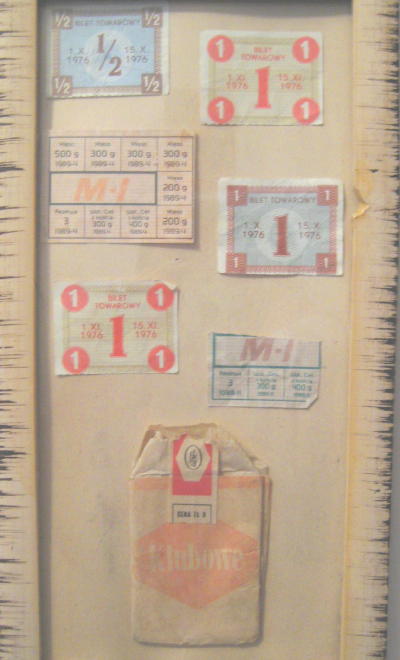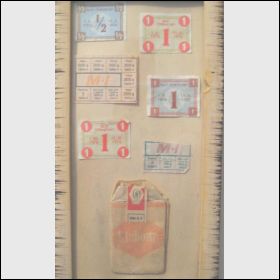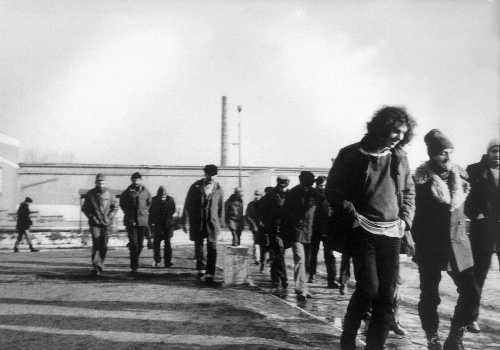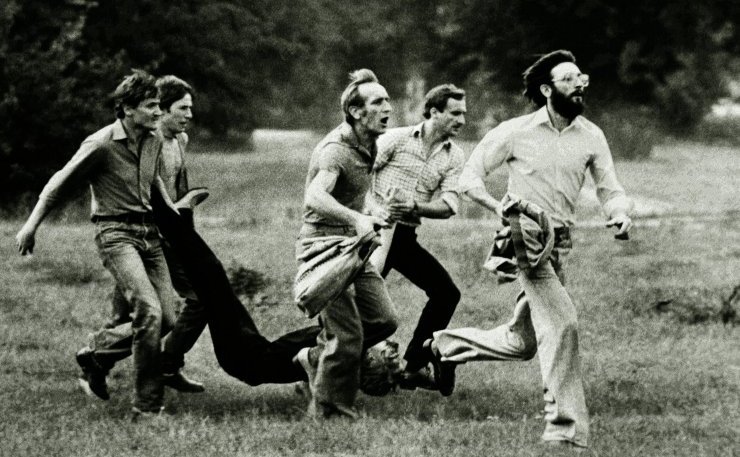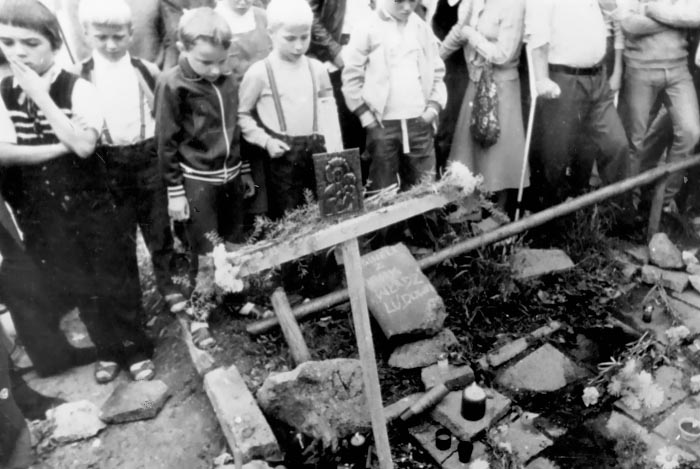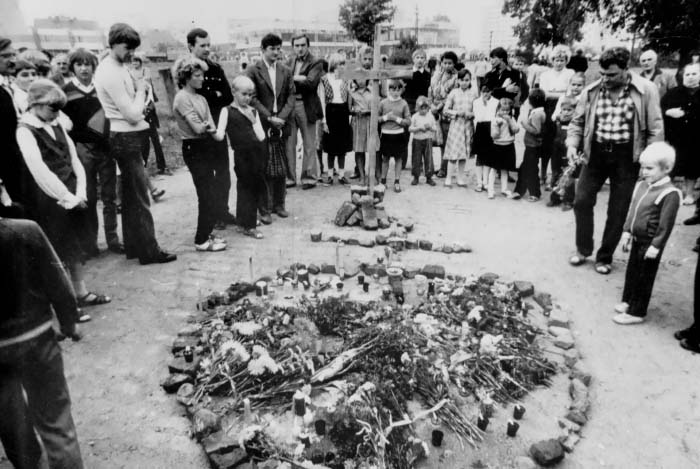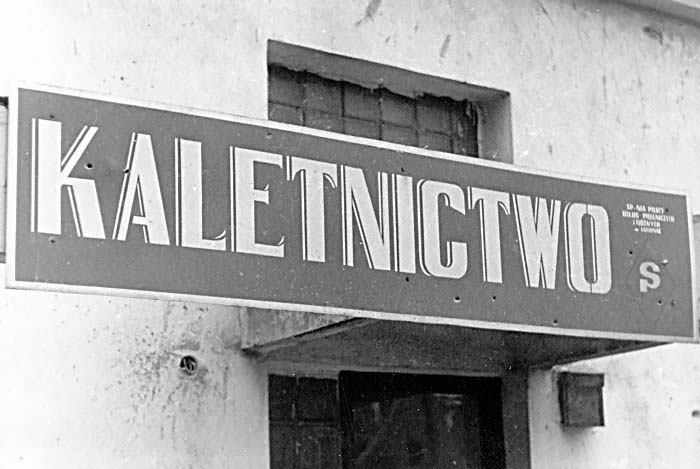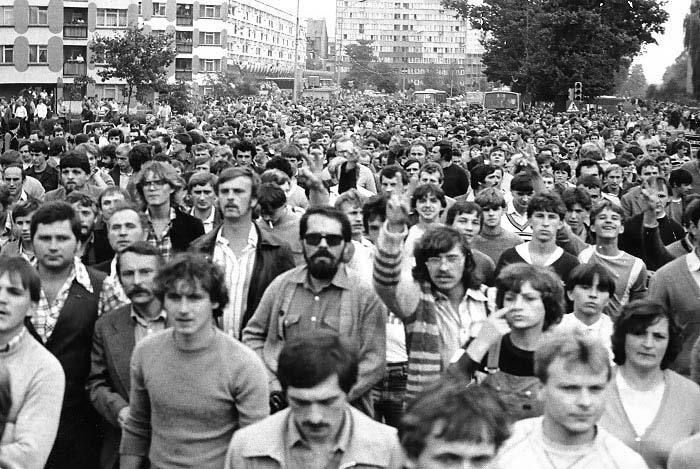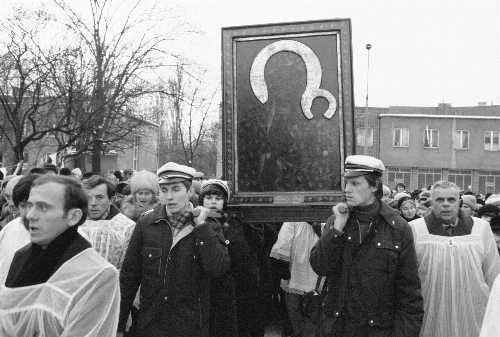After WW2 Poland, contrary to its peoples` will and expectations, fell into Stalin`s hands and became one of satellites in the communist block.
But Poles never gave up hope and many times they tried to throw off the communist yoke.
Some fought against communism when it was being introduced into the country.
These partisans stayed in the forest and continued the fight, attacking communist prisons and freeing fellow underground soldiers, Polish patriots imprisoned by secret police.
Soon stalinist terror suppressed all freedom and the nation seemed subdued. But in 1956 the workers` revolt in Poznań proved that Poles didn`t give up.
We demand bread!
The revolt in Poznań was supressed by tanks but Poles didn`t forget
and the fight went on.
Later in 1956, when the Hungarian Revolution against communists broke out, Poles wholeheartedly supported Hungarians.
Hands off Hungary!
After a few years of silence, the ferment rose again. In March 1968, two months before similar protests in Western countries, Polish university students and intellectuals decided to openly critisize the communist government. They were tear-gassed, beaten and imprisoned.
tarnow.pl/historia/taka/dane/68_2d.jpg
Even when the Polish army, on Soviet orders, together with other communist countries, invaded Czechoslovakia in August 1968, there were Poles who couldn`t accept it.
Ryszard Siwiec, burnt himself (suicide by self-immolation) to protest against the invasion.
Workers lost in 1970. But they didn`t forget
and in 1976 they protested again in a few cities in central Poland. Again party headquarters were in flames. This time communists didn`t shoot, but clubbed and imprisoned people.
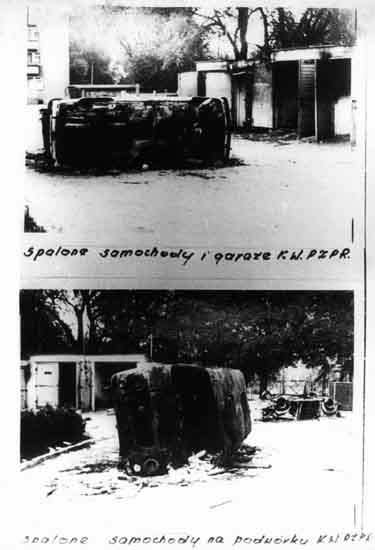
New inventions appeared in 1976
In 1978 Karol Wojtyła was chosen the Pope. He adopted the name of John Paul II. From then on, the Polish fight for freedom gained a powerful supporter. Though communism was still inhumanely strong, it was doomed to collapse......
to be continued...
But Poles never gave up hope and many times they tried to throw off the communist yoke.
Some fought against communism when it was being introduced into the country.
These partisans stayed in the forest and continued the fight, attacking communist prisons and freeing fellow underground soldiers, Polish patriots imprisoned by secret police.
Soon stalinist terror suppressed all freedom and the nation seemed subdued. But in 1956 the workers` revolt in Poznań proved that Poles didn`t give up.
We demand bread!
The revolt in Poznań was supressed by tanks but Poles didn`t forget
and the fight went on.
Later in 1956, when the Hungarian Revolution against communists broke out, Poles wholeheartedly supported Hungarians.
Hands off Hungary!
After a few years of silence, the ferment rose again. In March 1968, two months before similar protests in Western countries, Polish university students and intellectuals decided to openly critisize the communist government. They were tear-gassed, beaten and imprisoned.
tarnow.pl/historia/taka/dane/68_2d.jpg
Even when the Polish army, on Soviet orders, together with other communist countries, invaded Czechoslovakia in August 1968, there were Poles who couldn`t accept it.
Ryszard Siwiec, burnt himself (suicide by self-immolation) to protest against the invasion.
Workers lost in 1970. But they didn`t forget
and in 1976 they protested again in a few cities in central Poland. Again party headquarters were in flames. This time communists didn`t shoot, but clubbed and imprisoned people.

New inventions appeared in 1976
In 1978 Karol Wojtyła was chosen the Pope. He adopted the name of John Paul II. From then on, the Polish fight for freedom gained a powerful supporter. Though communism was still inhumanely strong, it was doomed to collapse......
to be continued...



